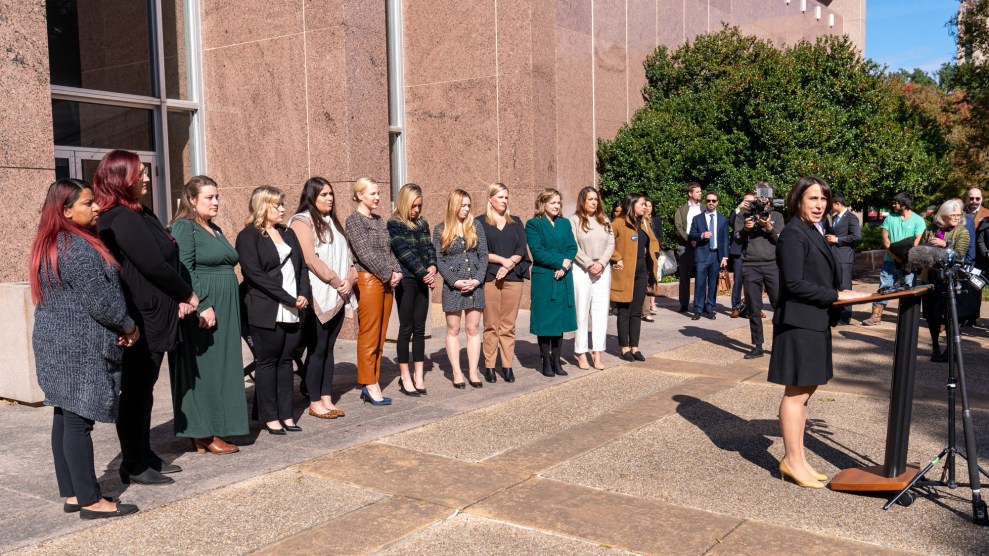
Texas Attorney General Ken PaxtonEric Gay/AP
On Friday night, the Texas Supreme Court paused a lower court’s ruling that had granted an emergency abortion for a pregnant woman whose fetus has a fatal condition.
The ruling was the latest in a quickly-unfolding case challenging the limits of the state’s strict abortion bans. On Thursday, a judge in Travis County granted the request for an abortion for Kate Cox, a 31-year-old mother of two, and protected her doctor from civil or criminal liability. Cox’s fetus has been diagnosed with trisomy 18, a chromosomal disorder that is nearly always fatal for the fetus, and Cox, who is 20 weeks pregnant, has already been to the emergency room several times during her pregnancy.
“Continuing the pregnancy,” the lawsuit read, “puts her at high risk for severe complications threatening her life and future fertility, including uterine rupture and hysterectomy.”
Within hours of Thursday’s ruling, Texas Attorney General Ken Paxton asked the Supreme Court to block the order, arguing Cox didn’t meet the criteria for medical exemption under the state’s abortion bans. On Friday, the state’s all-Republican Supreme Court said it was temporarily halting the lower court’s order “without regard to the merits” to allow more time to issue a final ruling.
Yet timing is of the essence for Cox. “While we still hope that the Court ultimately rejects the state’s request and does so quickly, in this case we fear that justice delayed will be justice denied,” said Molly Duane, an attorney at the Center for Reproductive Rights, which is representing Cox. In a filing on Friday, Cox’s lawyers indicated that she is still pregnant.
The state Supreme Court is also considering a separate lawsuit backed by the Center for Reproductive Rights, in which women and doctors are arguing that pregnant people with medical complications are not getting needed care. Texas’s abortion bans include exemptions in cases in which the patient could die or face “serious risk of substantial impairment of a major bodily function.” But the vague language of the law has left doctors “terrified” to deliver needed care, Duane told the court last month.
As the cases make their way through court, Cox is left waiting—for a ruling to come down, and for her pregnancy to unfold. She said in her petition, “It is not a matter of if I will have to say goodbye, but when.”















